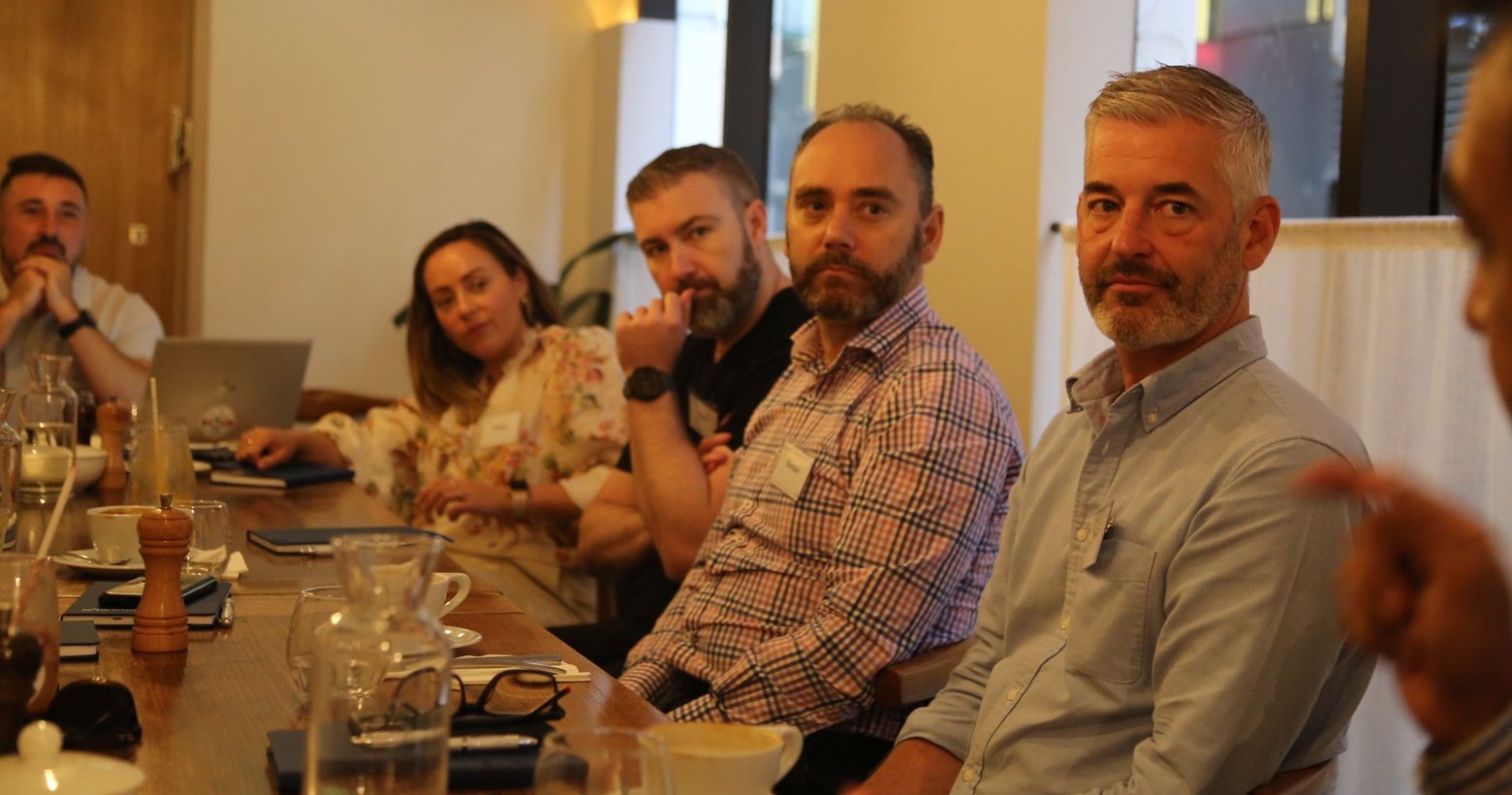Cross-skilling: why it's the next big thing in tech and digital

Business, tech, digital and marketing are merging, creating a workplace where cross-skilling is becoming the norm. How can you and your organisation get ready?
Cross-skilling: why it’s the next big thing in tech and digital
By their very nature, tech and digital are ever-changing. And, as they evolve, so do the learning, career and development opportunities.
But keeping on top of this rapidly shifting landscape can almost feel like another full time job.
That’s why we brought together 9 industry stalwarts from a cross-section of industries at a Digital Trends Roundtable last month. Held in Melbourne and hosted by our very own Simon Costa, it was a chance for these tech and digital experts to share their insights, experiences and learnings.
And what emerged front and centre? The idea of cross-skilling.
Roles have far more fluidity these days and, with the advent of new tech tools, business and IT aren’t as disconnected as they once were.
Now, that’s not a bad place to be. But how do businesses manage the merging of skills? What’s going to happen to jobs? And what are the challenges to look out for?
You’ve come to the right place 👇🏼
New trends mean new skills
Staying on top of trends is all well and good, but teams need the skills to match. So where do organisations start?
According to a roundtable participant from one of Australia’s leading insurance and banking businesses, it’s about uncovering exactly what skills people have - and where the gaps are.
And that means asking questions like ‘how can they apply their skillset and ways of thinking to other methodologies?’
It’s also about staying abreast of changing consumer behaviours, he says.
‘For example, our content teams have started using TikTok as a search function, rather than Google, while UX is moving from visual interfaces to conversational ones,’ he explains.
It’s these sorts of nifty tools which are blurring the lines between business and tech jobs, one of our guests from a well-known Australian university told us.
"There are more and more tools at our fingertips, which is leading to a lot of overlap in jobs," he says. "Take prompt engineers, for example: they’ve traditionally been the ones who extract data insights"
‘Now, however, new tools mean you don’t necessarily need any engineering background to get those same insights.’
Enter cross-skilling. It’s happening - but it’s not without its challenges.
The cross-skill conundrum
A person who can code like Tim Berners-Lee, yet has a business brain to rival Jack Welch? Score.
Or is it?
On paper, sure. But in the real world, not everyone will have the chance to upskill. And for those who do, there’s a risk they’ll lose their depth and become a jack of all trades - and a master of none.
Yet, says our university roundtable member, we can’t escape the pressure from employers to possess a healthy dose of business skills.
‘There’s an increasing expectation that even people in deep tech need business skills to make the biggest impact,’ he stated.
Time to break it to the coders, UX-ers and other tech heads: brush up on your business acumen.

But can tech and business meet in the middle?
There’s a reason why certain people are drawn to certain jobs. Some prefer to stay in the background doing their thing, while others sizzle with strategy.
A merging of the minds is great in theory, but embracing new trends and skills isn’t always straightforward, our insurance and banking contact reminded us.
‘Our UX team has a lot of introverts, which is no issue in itself,’ he says. ‘But if we ask them to run a workshop, for example, they’re really out of their comfort zone.’
Nothing wrong with being out of our comfort zone, of course. At the same time, it shouldn’t only be the IT teams doing the heavy lifting on upskilling in areas that don’t come naturally, explains another of our insurance industry experts.
‘It’s unfair to complain about developers not having soft skills if business leaders have an equally limited knowledge of technology,’ he notes.

One of our insurance voices agrees with this sentiment. He also says it’s a fine balancing act between ensuring specialisation, while also retaining the horizontal layer of generalist skills.
‘We’ll always need specialists,’ he says, ‘but the million dollar question really is ‘Do we need to breed more business acumen in tech leaders, or do we need more tech specialisation in the business leads?’
Good question. The right question. And our university roundtable member has (at least some of) the answers.
‘It’s important to communicate the ‘why’, he points out. ‘If they know the reasons behind bolstering their business skills, they’ll be more open to embracing the idea.’
Having worked across multiple transformation projects, the insurance industry participant says he’s already seeing people on the business side tell tech teams what they should be doing.
Bit rich, you think? Not necessarily, he says.
‘Everyone - no matter where they sit - needs to know which part of the business they’re expected to impact.’
Fair enough. But where does that leave us, then?
‘I believe citizen development across businesses will emerge as the key to building those strengths and skills,’ our insurance expert concludes.
Are the robots taking over?
Cross-skilling. New skills, Upskilling 🥴 What if we just left it to the robots?
Certainly, with all the talk of AI lately, it’s easy to think we’ll all be knowing robots by Christmas.
Not so fast, doomsdayers.
There’s still room for the humans. Sure, some customers only want to interact through tech - but plenty of others still want to talk to a real person.
The lesson here? Don’t cancel your company’s customer skills any time soon. At the same time, don’t make assumptions about anyone, either.
‘It’s simply too risky to assume those tech skills won’t be filtered across different generations,’ warns our banking and insurance expert. ‘We initially assumed our older customers didn’t want or need an app, but didn’t consider the hand-me-down iPhones they would inherit from their grandkids.’
And, at the end of the day, it’s about knowing what your customers want in order to attract and keep them.
Staying ethical
As we manage this merging of minds, skills and jobs, just whose responsibility is it to ensure people aren’t left by the wayside?
Short answer: everyone’s.
‘No one can ever rely on always doing the job they’re doing right now,’ cautions our banking and insurance participant. ‘Every employer, every manager needs to understand what these trends and changes can mean for their development.’
In other words, the reins of your career belong firmly in your hands.
Getting comfortable with the challenge of change
There will always be business challenges. And nothing will ever stay static. The best moves you can make are to accept that trends like cross-skilling are coming, prepare for the changes and stay transparent with your teams.
‘We are speaking with candidates every day across technology, business, digital and marketing - and we are seeing their skills cross over more and more,’ Talenza’s Simon summarises.
Whether your organisation has already embraced the latest tech trends, or is prepping to pivot, we’re here to help.
If you want to chat cross-skilling, upskilling or anything else that has come out of this discussion around emerging digital trends, get in touch here.